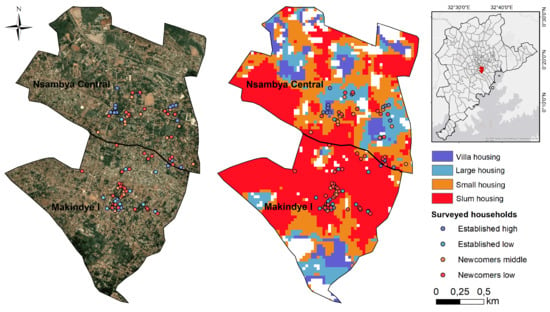By 2050, 70% of the world’s population will live in cities. Africa will account for more than two thirds of this growth, and costs of food insecurity and malnutrition – historically considered a rural problem – will increasingly be transferred to cities. Acknowledging this challenge, this project aims to promote sustainable and nutrition-secure city food systems in Africa by developing knowledge and tools for local and national development planning.
Conventional responses to food security have stemmed from agriculture, framing food security as a production problem. However, a focus on production alone will not solve food insecurity and malnutrition in Africa’s cities. Most food-insecure households are limited more by food access, which is affected by drivers like poverty, price volatility, availability of healthy foods, market structures, and supply disruption from environmental degradation, natural disasters and climate change. Interventions addressing city food insecurity and malnutrition therefore need to consider these drivers, as well as interactions beyond the city. City food demand strongly shapes the peri-urban and rural landscapes that produce the food, or even distant areas through global markets. These effects themselves create feedbacks that influence city food and nutrition outcomes.
Considering these complex dynamics requires broader thinking about food, beyond single disciplines or sectors, accounting for the full set of activities across food chains. This project links within-city food systems to broader land systems. Such model integration allows quantification of how changes within and beyond the city influence city food and nutrition outcomes over time, thus making explicit the synergies/trade-offs with other desired outcomes, e.g. Sustainable Development Goals (SDGs).
The project uses two case studies to develop planning tools for enhancing city food and nutrition security: Kampala, Uganda and Cape Town, South Africa. Both city food systems are changing rapidly – Cape Town with a longer history; Kampala more recently. Urban expansion threatens productive croplands around both cities, with Kampala identified as a hotspot of global cropland loss. Food production is also threatened by changes in ecosystems and climate. There is a strong trend toward consolidation across the food chain (production, processing and retail), making market-entry for small-scale operators difficult. Patterns of socio-economic segregation dominate, with poverty-concentrated areas showing high levels of malnutrition and limited access to affordable, nutrition-rich foods. Formal and informal food networks in poor areas are strongly coupled and play an important role in food access and affordability. Objectives of the project are to:
- Develop models to link within-city food system dynamics to dynamics of the broader landscape
- Co-develop scenarios of city food futures
- Evaluate scenarios in terms of city food and nutrition outcomes, and equitable ecosystem benefit flows and economies across the urban, peri-urban and rural landscape
- Identify opportunities and interventions for building positive food futures in local and national development planning, and highlight multiple co-benefits
- Reflect on case study lessons for scaling impact elsewhere












Recent Comments